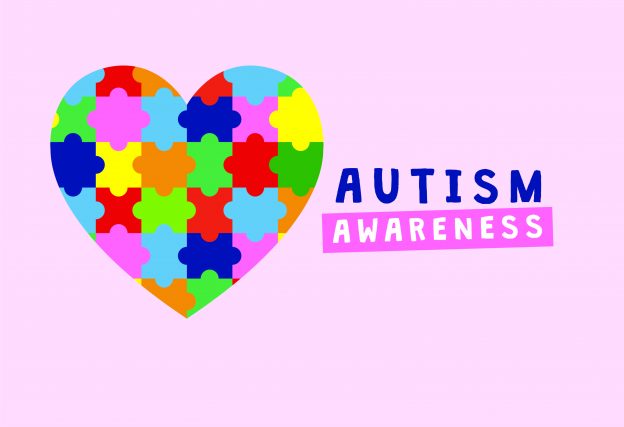Today is World Autism Awareness Day, an annual, internationally recognised day to help raise awareness of autism and celebrate the achievements and talents of people living with the condition. Read on to find out more about autism…
What is Autism?
Autism is a lifelong condition which affects how people communicate and interact with the world.
https://www.youtube.com/watch?v=Lk4qs8jGN4U
How common is autism?
Autism can affect people from all nationalities and social backgrounds; and is much more common that most people think. There are around 700,000 autistic people in the UK.
Signs
Autism is a spectrum condition, which means that it affects people in different ways, however most autistic people see, hear and experience the world differently from other people. Some common characteristics are:
- Difficulties with social communication and interaction – Autistic people may find it hard to join conversations or to make friends. Many autistic people have a very literal understanding of language, and may find it difficult to use or understand facial expressions, tone of voice or jokes and sarcasm.
- Repetitive behavior, routines and activities – Autistic people can find the world very unpredictable and may prefer having fixed daily routines and repetitive body movements so they know what is going to happen every day.
- Sensory sensitivity – Autistic people may also be under- or oversensitive to certain sounds, lights and colours. For example, they may find certain background sounds, which other people ignore, unbearably loud or distracting.
The signs are present over time and have a noticeable effect on daily life.
Causes
A definitive cause of autism is still being investigated, however research into causes suggests that a combination of factors such as genetic and environmental may account for differences in development. Autism is not caused by a person’s upbringing, their social circumstances and is not the fault of the individual with the condition.
How you can help
Autism is not an illness or disease and cannot be “cured”, however there are ways to support autistic people, their families, carers and friends. You can help by:
- Spreading understanding about autism
- Donating to or fundraising for charities which provide information, advice and support to autistic people, such as Autism Alliance and National Autistic Society
- Volunteering in offices, schools and services which support autistic people. Take a look at volunteer opportunities with the National Autistic Society
For more information about Autism please visit www.autism.org.uk

